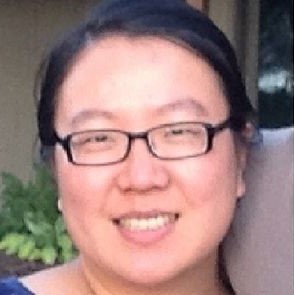The mission of God’s people is to witness to the truth, justice, and love of Jesus Christ in their local context. When church leaders practice things contrary to these principles, their witness risks becoming scandalous. Over the past two years or so, we have seen examples in the #MeToo and #ChurchToo movements among Western churches. As one article in this issue quotes, “A good use of power always reflects Christ-likeness, while a misuse or abuse of power bears the name of Christ but not his likeness.”[1] This summer issue of ChinaSource Quarterly focuses on the topic of leadership ethics among the growing churches in China. A few thoughtful Chinese Christians share their observations.
Researcher, Mary Li Ma, notes that the readership of media content on spiritual abuse within the church has been on the rise, showing the evident relevance of this topic. She addresses why this side of reality should not be neglected, even during a more restrictive phase for churches in China. Ma also addresses the common causes of power abuse in this local context, including communicative, demographic, political, cultural, and theological factors. Towards the end of her article, she provides ethical principles for church leaders and foreign Christian workers.
New media ministry leader, Jerry An, discusses the lessons of leadership failure in Western churches. He challenges Chinese church leaders to walk the extra, needed miles beyond the existing models of leadership, either focusing on “influencing” the upstream or “serving” the downstream. Such strategies are idealistic and do not always work consistently. As leaders immersed in a very authoritarian culture, Chinese pastors need a more sober view of themselves.
Witnessing Christ in communist China may be cross-cultural, but few people can resist the temptation to eagerly swim with the tide of gaining “Christian influence” through means provided by secular society. “The renewal of individual life and collective culture is a slow process; it needs patience and humility.” Jerry An points out that Christian character is best revealed “by how we face ‘our badness.’” In the end, he reckons that the rise of a new media and technological environment may become even more challenging to paternalistic leadership.
With regard to the formation of governance structures (institutionalization 建制化), LI Jin reviews how Western churches and their counterparts in China traveled contrary trajectories. While the Western church has outgrown its institutionalized phase, churches in China are just beginning to rebuild their structures of governance. Although churches in China embrace institutionalization as a new and promising thing for expansion of Christian influence, LI cautions against its potential risks. He also observes that the post-Christendom West may have projected its hope for Christian influence on churches in China where some leaders interpret the role of the church as being in a pre-Christian Rome. However, the hunger for influence may breed the abuse of power when churches have few accountability structures. In the end, LI also discusses some emerging theological confusion in the area of ecclesiology.
In his article, Sam Ren dissects a particular phenomenon in Chinese churches which he calls “spiritualized political correctness.” A case study is given as an example to show how this internal cultural norm plays out in the church. Ren then analyzes three causes of this “strong form of legalism”: (1) long-term marginalization of churches in China; (2) low-cost maintenance of the Christian faith; (3) a need for certainty as a way to cope with rising uncertainty and changes in Chinese society. The result is an assembly-line type of Christianity ripe with opportunities for abuse of power by pastors.
Pastor Jeshurun Lin wrote a review of the historical novel, The Apostates, by Christian writer, Shi Wei. The novel is based on events around the Watchman Nee controversies during the 1950s in China. The ChinaSource team translated and summarized the book review providing an overview of how the story unfolds. The review includes Lin’s own reflections on the role of a pastor and the dangers of power abuse.
Last, but not least, ChinaSource president, Kerry Schottelkorb, writes about the need for leaders to walk in the light. He reflects on how a pastor’s identity is often caught between “doing” things for God and “being” his humble follower. Church leaders ought to stay vigilant about the temptation of spiritual pride lest it turn their witness against them before God.
In the Resource Corner, we provide a few links to Christian psychologist and #MeToo advocate Diane Lanberg’s talks on power and authority in the church.
It is our sincere hope that this issue of ChinaSource Quarterly will inform you about current dynamics in the Chinese church. May God help us to stay vigilant together even as the night grows darker.

LI Jin
LI Jin is a PhD student at Calvin Theological Seminary. Prior to seminary he was a PhD candidate in economic history at a Shanghai university. He writes on Christian thought for both public and Christian media outlets in mainland China and Hong Kong. LI Jin and wife Mary Li Ma have coauthored articles, book …View Full Bio

Mary Li Ma
Mary Li Ma (MA Li) holds a PhD in sociology from Cornell University. Currently a research fellow at the Henry Institute of Christianity and Public Life at Calvin University, Dr. Ma and her husband LI Jin have coauthored articles, book chapters, and are the authors of Surviving the State, Remaking the Church: …View Full Bio